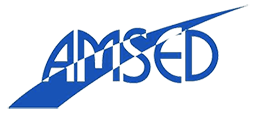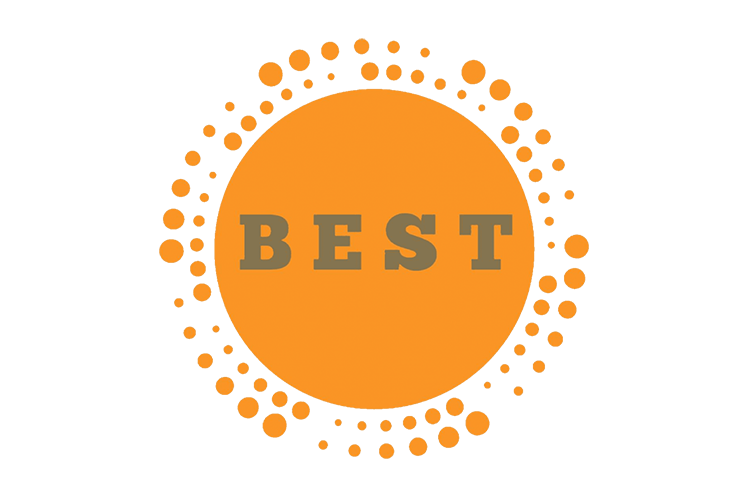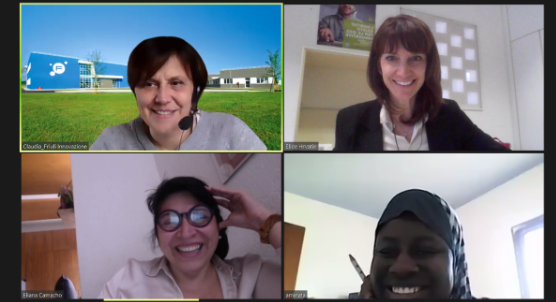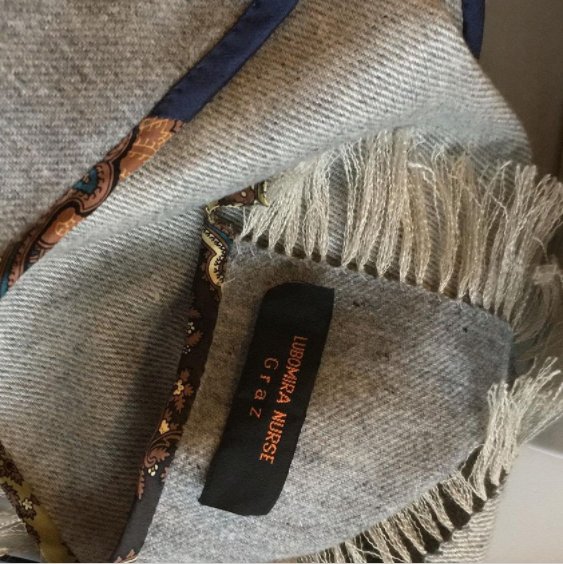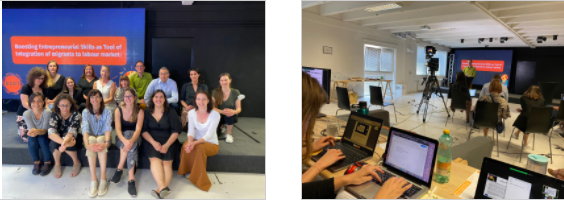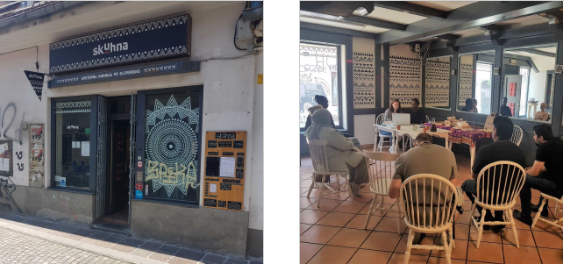#BEST4all that are trying to find their place in the world and do what they love!
Find out the news about practices and examples of effective integration of third-country nationals in Austria, Italy, Slovenia and Croatia conducted on the BEST project by
FH-Johanneum, Gain & Sustain, OIKOS, Friuli Innovazione, ZRC SAZU, Impact Hub Zagreb and Centre for Peace Studies!
What the BEST means to us?
What the BEST courses on social entrepreneurship ment to our students and cooperators? Let’s hear what they say!
BEST tailor-made support
Friuli Innovazione is providing tailor-made support to 3 best ideas that attended the 3rd BEST entrepreneurial course within an acceleration programme. The accelerated project can benefit of a specialized support of mentors who were matched with each beneficiary team as well as regular tutoring and coaching activities carried out by Friuli Innovazione’s business incubator. The aim of this phase is to create a fast-track for projects development based on the real needs of the aspiring social entrepreneurs in order to make them grow and to become part of our business eco-system.
BEST is connecting
Thanks to the extension of the cooperation network of the project, BEST project’s good practices for third-country nationals’ job integration in Friuli Venezia Giulia, keep on getting important results. Actually, there are two more cooperation agreements signed by Oikos onlus, together with Friuli Innovazione, with two prestigious partners belonging to the vocational training field.
In February the cooperation agreement was signed with SISSI Imprenderò network (integrated system for entrepreneurship services development) that collects 25 partners in the project Imprenderò, while in April the cooperation agreement was signed with Civi.form, vocational training centre.
It is an important result, that amplifies and “exports” the results obtained by the 3 editions of the BEST courses of “Social impact entrepreneurship” made by Oikos, that during the difficult pandemic period allowed a significant number of persons to get competencies and instruments to realize their entrepreneurial project; only in the October edition, participants were 35, belonging to 15 different nationalities, mostly women (65%).
The agreement points at giving further wide-spreading to BEST modeling and methodology “because of its specific characteristics of scientific and cultural attention towards a new target with different level of scholarship and different cultural belonging”.
In particular, thanks to the two agreements, beyond roundtables already made, there are two seminars to be realized together with the University of Udine (on July 14th and on September 8th). Furthermore, between May and June, the BEST model and methodology, has been presented to more than 200 students belonging to 7 secondary schools of the Udine province.
With Entrepreneurship towards Successful Integration – is it working?
With Entrepreneurship to Successful Integration! But how does integration really work out? A one-sided question with many answers. As the responsible project manager at the FH JOANNEUM of BEST, I was invited to talk about this subject by NEXT INCUBATOR, a BEST cooperation partner in Styria, who has valued and supported our project from the very beginning. Self-employment is one of the most successful instruments for creating long-term labour integration, generating a win-win situation for all parties involved and increasing the integration of third-country nationals and migrants at various levels.
Future entrepreneurs with a migration background face specific challenges when starting their own business, such as lack of resources, lack of access to information, limited language skills or complicated administrative procedures. With the BEST project, we were able to create appropriate structures through concrete cooperations that can provide the necessary support to become self-employed and/or start a business. The sustainability of the BEST project for the future is visible in many examples of business ideas that have meanwhile been successfully launched or are in the process of being implemented.
By way of example, we would like to refer to “Lubomira-Nurse-Textiles”, a business idea that has been developed during the BEST training: She started her business in 2020 by making sustainable textiles such as waxed bags for bread or scarves, finished by hand with silk edging. One group of products is made using Austrian linens and wool of very high quality (woven in the Mühlviertel region) and using wax from beekeepers in Styria. She is also teaching workshops on upcycling textiles. For the time being, she is working from home, but in the long run, she is looking for an affordable studio. a business idea that has been developed during the BEST training: She started her business in 2020 by making sustainable textiles such as waxed bags for bread or scarves, finished by hand with silk edging. One group of products is made using Austrian linens and wool of very high quality (woven in the Mühlviertel region) and using wax from beekeepers in Styria. She is also teaching workshops on upcycling textiles. For the time being she is working from home, but on the long run she is looking for an affordable studio.
The project ends, the benefits remain
After almost two years and a half, the project BEST is coming to an end. On the 14th of June, Gain&Sustain:Europe in cooperation with the BEST Consortium organized the BEST Final Conference in a hybrid format. Over 50 participants attended the event via Zoom while the project partners traveled to Graz to participate in situ. The participants were able to actively join in the multiple sessions on different topics related to the BEST project and led by experts of the project partners. Participants from the BEST entrepreneurship courses, train-the-trainer activities, and external stakeholders were able to receive and exchange interesting information, not only of the BEST project but also from other guests speakers that share their insights on the topic of migrant entrepreneurship and inclusion.
The event was exciting for the project partners who were able to finally meet face-to-face after implementing the project mostly online for over a year.
Seasoning of change in Slovenia
Round table events within project BEST are a great way to connect with stakeholders of the project, migrants who live in Slovenia and other interested public. They provide interesting insight from professionals in the field of social entrepreneurship and enable participants to engage in fruitful discussion with facilitators and others. Slovenian partner, ZRC SAZU, organized altogether 8 round tables and the one we would like to tell you more about, is one of the first social enterprises in Slovenia, restaurant Skuhna in Ljubljana. They offer authentic dishes from Africa, Asia and South America prepared by international chefs. At our 7th round table they presented their beginnings, obstacles they have been facing and all the positive outcomes of their work that is based on bringing together people from all around the world. You can read more here: www.skuhna.si.
Hacks for the #BEST future we can imagine!
Centre for Peace Studies and Impact Hub Zagreb organized and facilitated BEST Hackathon for curious minds everywhere. This innovative event aimed to empower organizations and third-country nationals to become active agents of change in their local communities by creating sustainable social business models for their activities. Through this interactive, highly participatory, engaging, and hands-on event based on a set of knowledge inputs and mentoring they became those who were able to influence the change of their reality and have the opportunity to ensure the right and sustainable support in the future.
The purpose was to explore the sustainability and further dissemination of Project BEST through building sustainable business models that could be scaled, replicated, and disseminated across similar projects that support the integration of migrants into the labor market.
Participants were solving one out of two proposed challenges:
- Develop a social business model that provides entrepreneurial and mentoring support for migrant entrepreneurs to be
- Develop a social business model to provide the support needed for migrant entrepreneurs in the phase of Growth and Scale Three ideas were developed during the Hackathon:
Migraprenurs developed a Platform & matchmaking tool that provides free access to educational platforms and toolkits for migrant entrepreneur candidates.
The Harvester developed an idea focused on migrants from Africa. The solution they presented was to open a cultural house, where training, exchange, culture exchange, and entrepreneurship courses could happen among other activities.
Verso developed a solution creating a bridge between indigenous artisans (have the product and story) and skilled young Europeans (have the market, the skills, and tools to do business). The solution is a high-tech e-commerce business that sells high-quality alpaca products.
All three projects got additional mentoring hours and are now in the stage of developing their products and services.
Aniko successfully finished the BEST course on social entrepreneurship organized in Zagreb, Croatia by Centre for Peace Studies and Impact Hub Zagreb. Check out her brand MY OH MY.
Check Saffradoodle project and her work! Saffron successfully finished the BEST course on social entrepreneurship organized in Croatia by Centre for Peace Studies and Impact Hub Zagreb.
